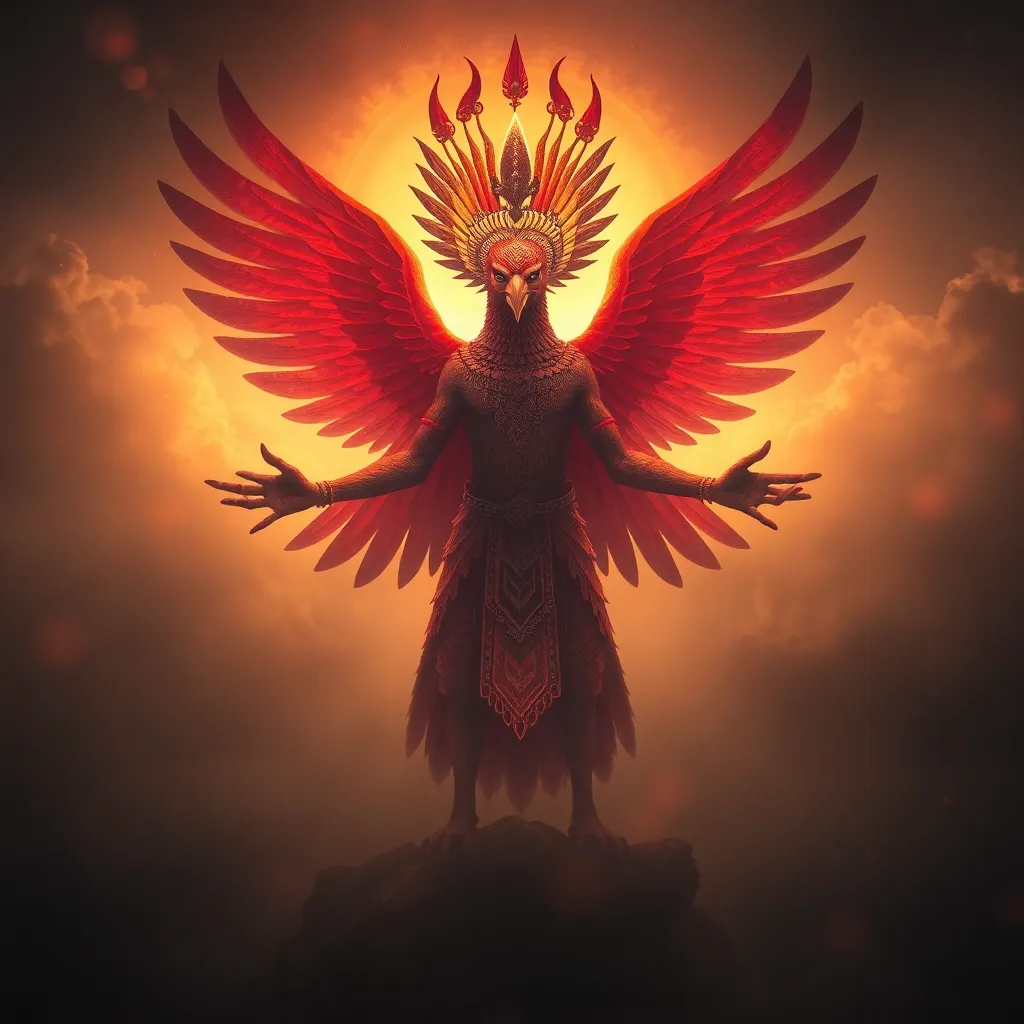The Garuda’s Message: Understanding the Bird-Man’s Role in Shaping Human Values
I. Introduction
The figure of Garuda, a mythical bird-man, holds a significant place in various mythologies, particularly in Hindu and Buddhist traditions. This majestic creature is not just a symbol of power and freedom but also embodies deep spiritual values that have shaped human thought across cultures.
Throughout history, the Bird-Man figure has appeared in numerous societies, each interpreting its symbolism in unique ways. The purpose of this article is to explore the rich tapestry of meanings associated with Garuda and how these meanings continue to influence human values today.
II. The Mythological Significance of Garuda
Garuda’s origins can be traced back to ancient texts, where he is depicted as a divine bird that serves as the mount of Lord Vishnu, one of the principal deities in Hinduism. In Buddhist traditions, Garuda is seen as a protector and a symbol of strength.
The stories of Garuda often highlight themes of courage, loyalty, and the eternal struggle between good and evil. His symbolism is deeply intertwined with spiritual contexts, representing not just physical flight but also the aspirational journey of the soul towards enlightenment.
As the vehicle of Vishnu, Garuda’s role carries profound implications for divine protection. He is often portrayed as a fierce guardian, protecting devotees from harm and guiding them on their spiritual path.
III. Cultural Interpretations of Garuda
Across Southeast Asia, Garuda has been a prominent figure in art and literature. His image is often found in sculptures, paintings, and traditional performances. In Indonesia, Garuda is a national emblem, symbolizing freedom and the spirit of the nation.
Variations of the Garuda figure exist in different cultures, such as the Thai ‘Krut’ or ‘Garuda’ in Javanese mythology. Each culture has adapted Garuda’s traits to fit its own narratives and values, demonstrating the adaptability of this powerful symbol.
The influence of Garuda on national identities is particularly notable in Indonesia and Thailand, where he represents not only mythology but also cultural pride and heritage.
IV. The Symbol of Freedom and Strength
Garuda is often viewed as a representation of freedom and liberation. His ability to soar high in the sky resonates with the human desire for autonomy and self-discovery. In many narratives, Garuda’s quest for freedom from bondage serves as an inspiration for individuals seeking to break free from oppression.
The attributes of strength and power associated with Garuda are equally significant. He embodies resilience, courage, and the capability to overcome challenges, qualities that resonate with human values in contemporary society. These virtues encourage individuals to strive for personal growth and advocate for justice in their communities.
V. Garuda’s Role in Ethics and Morality
Garuda’s narratives often convey important lessons about justice and righteousness. His struggles against adversities illustrate the importance of standing up for what is right, even in the face of great odds. As a symbol of moral courage, Garuda inspires people to act with integrity and honor.
The implications of Garuda’s lessons extend to personal and societal values, urging individuals to reflect on their choices and the consequences of their actions. By embodying principles of justice and righteousness, Garuda serves as a timeless guide in ethical decision-making.
VI. Garuda in Modern Contexts
In recent years, there has been a resurgence of Garuda imagery in popular culture. From films to fashion, the Bird-Man’s symbolism has found new expressions that resonate with contemporary audiences. This revival highlights the enduring relevance of Garuda’s message in a rapidly changing world.
Garuda’s influence can also be seen in contemporary spirituality and self-help movements, where his attributes of strength and liberation are embraced as guiding principles for personal development.
In today’s globalized world, the message of Garuda remains pertinent, reminding individuals of the universal quest for freedom, justice, and ethical integrity.
VII. Lessons from Garuda: Bridging Tradition and Modernity
Garuda’s values can provide profound insights into modern ethical dilemmas. As society grapples with issues such as social justice, environmental sustainability, and personal freedom, the timeless lessons of Garuda can guide individuals and communities in navigating these challenges.
The role of cultural heritage in shaping future human values is crucial. By integrating traditional wisdom, such as that embodied by Garuda, with contemporary challenges, society can cultivate a more compassionate and just world.
VIII. Conclusion
In summary, Garuda’s enduring legacy continues to shape human values across cultures and generations. His symbolism as a protector, a symbol of freedom, and a guide for ethical conduct provides a rich framework for understanding personal and societal growth.
Understanding cultural symbols like Garuda is essential in shaping values that resonate universally. As we reflect on the role of mythological figures in our lives, we recognize their capacity to inspire and guide us through the complexities of existence.
Ultimately, the message of Garuda serves as a powerful reminder of the values that connect us all, encouraging us to soar to new heights in our personal and collective journeys.




